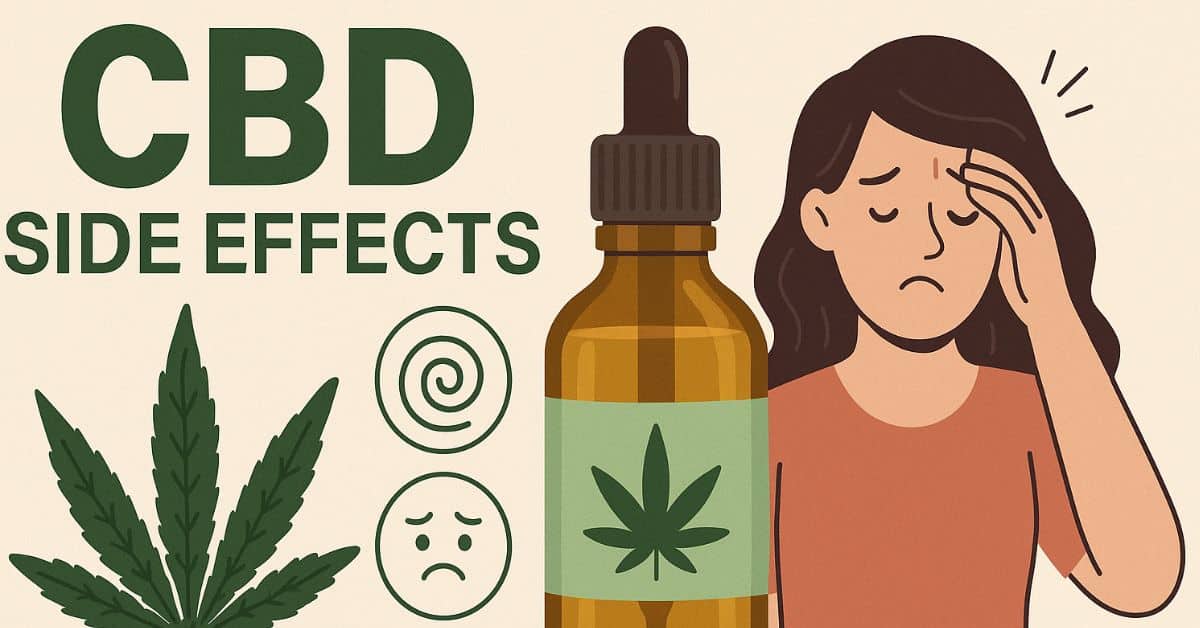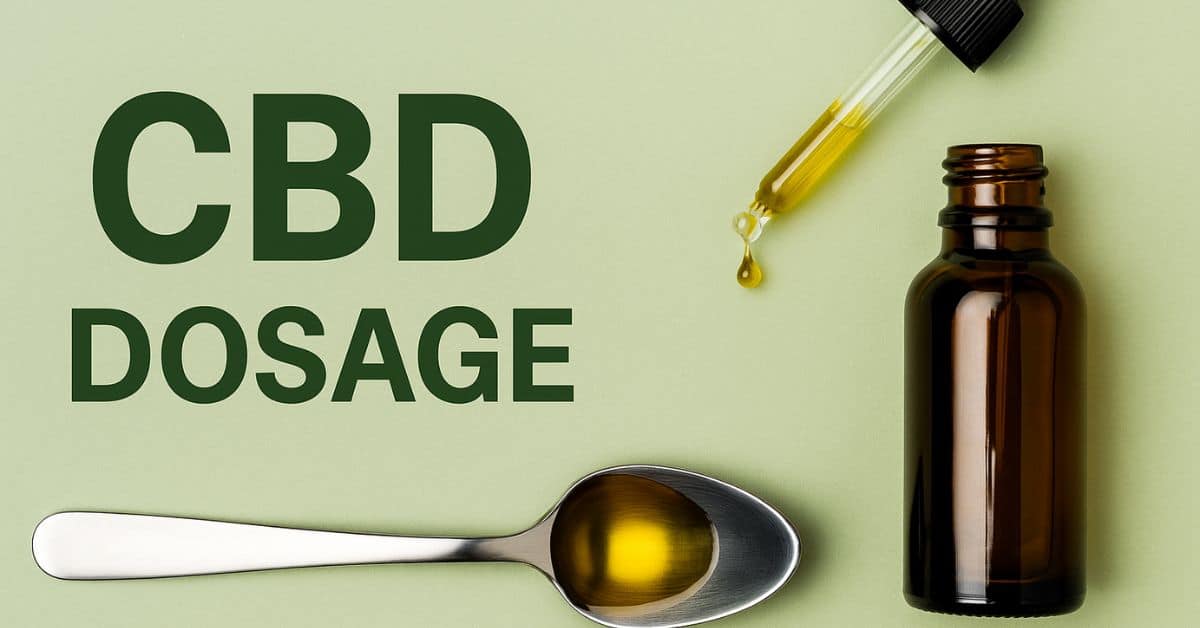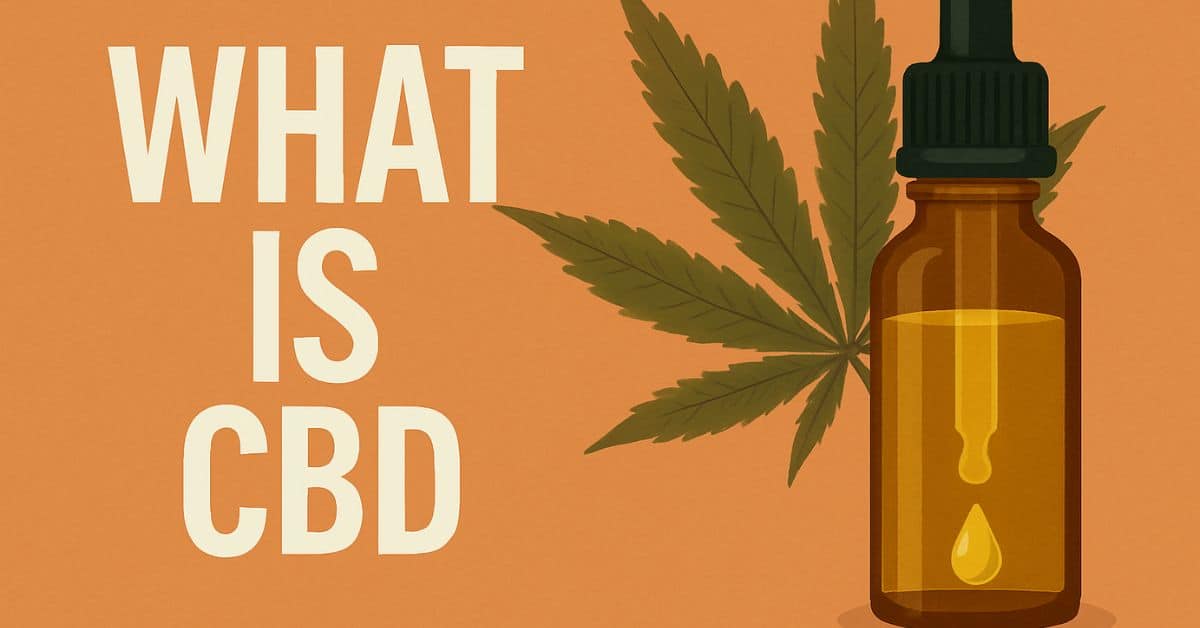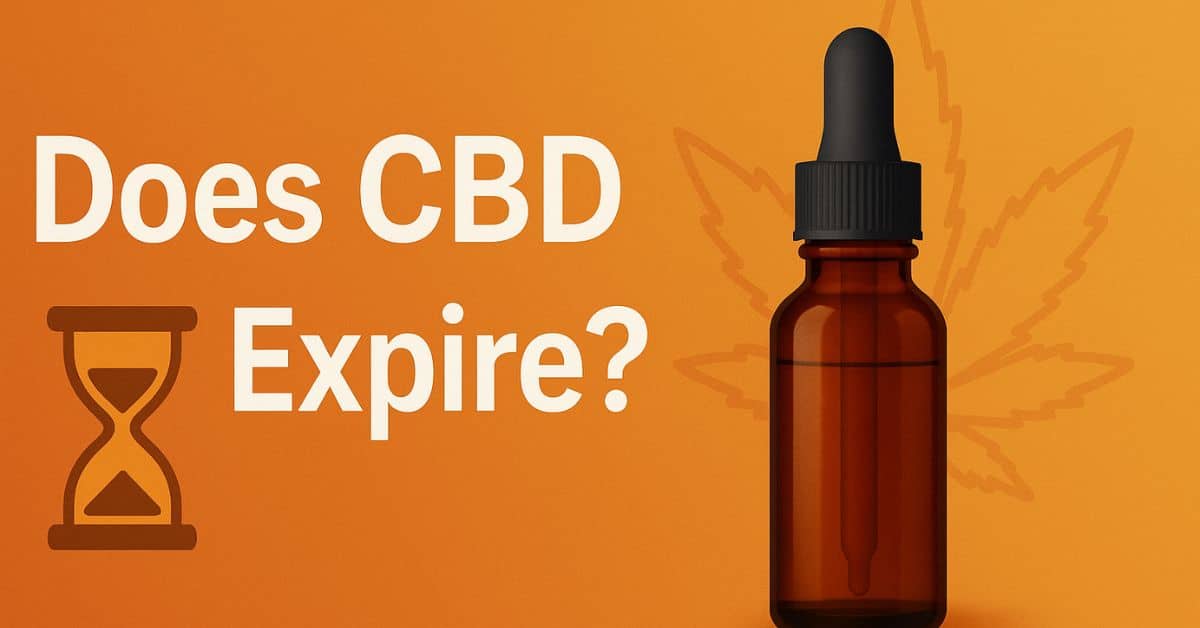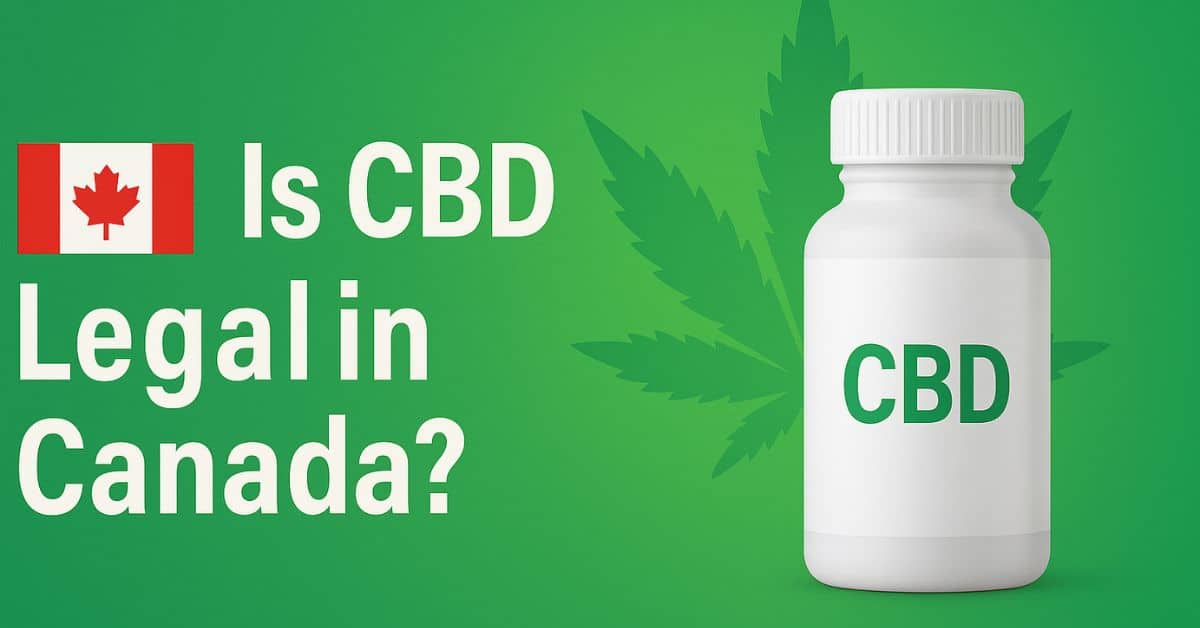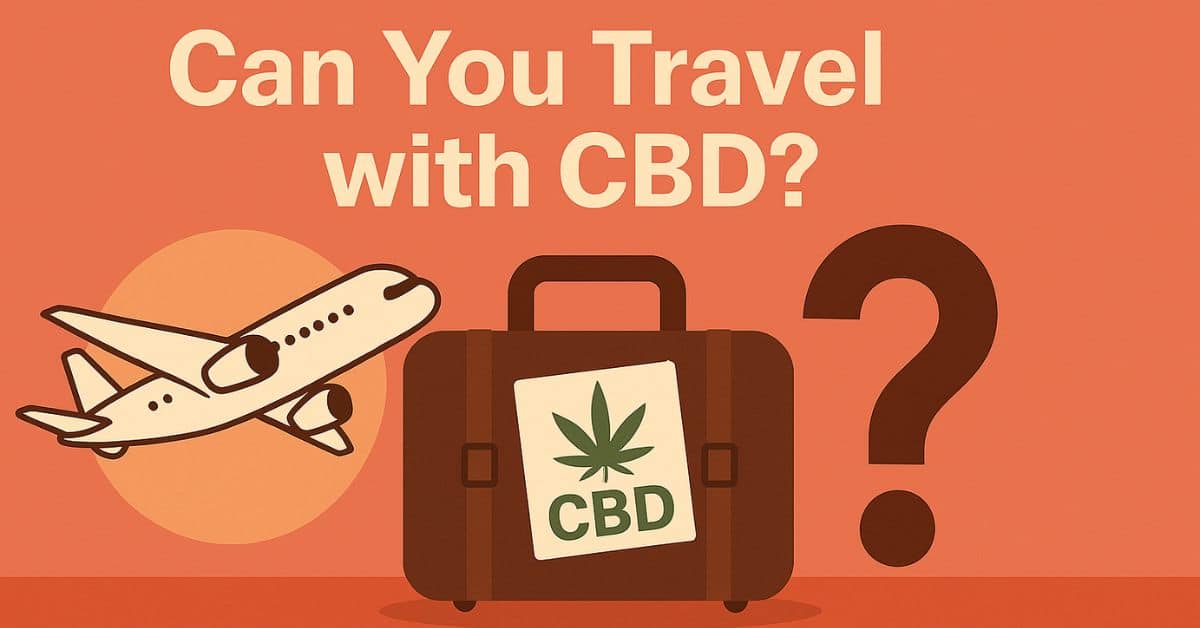CBD (cannabidiol) is generally considered safe and well-tolerated, but it can cause side effects such as dry mouth, drowsiness, diarrhea, appetite changes, and interactions with certain medications. Most of these effects are mild and temporary, but it’s important to understand them before adding CBD to your routine.
As one of the most widely used cannabinoids in Canada, CBD is popular for stress relief, sleep support, pain management, and overall wellness. Still, every body reacts differently, and knowing the potential side effects can help you use CBD more safely and effectively.
In this guide, we’ll break down the most common reactions, what the science says, and how to reduce your risk while enjoying CBD’s benefits.
Most Common CBD Side Effects
Although CBD is often described as “low risk,” it’s not completely free from side effects. Research and user reports show that certain reactions can occur, especially at higher doses or when CBD interacts with other medications. Here are the most common side effects to be aware of:
- Dry Mouth: CBD can reduce saliva production, leaving your mouth feeling dry or “cotton-like.” [1] It’s not dangerous, but it can be uncomfortable. Staying hydrated and chewing sugar-free gum usually helps.
- Drowsiness or Fatigue: For some people, CBD has a calming effect that can lead to drowsiness [2] — especially at higher doses. While this can be useful for sleep support, it may not be ideal during the day if you need to stay alert.
- Digestive Issues: Some users report diarrhea, upset stomach, or nausea when starting CBD [3], particularly with oil-based products. These effects are usually dose-related and may subside as your body adjusts.
- Changes in Appetite: CBD can influence appetite in both directions. Some people notice an increase, while others experience reduced hunger [4]. These effects are typically mild and temporary.
- Medication Interactions: Perhaps the most important side effect to note: CBD can interact with certain medications, especially those processed by the liver enzyme CYP450. This may change how your body metabolizes prescriptions like blood thinners or anti-seizure drugs. If you’re taking medication, it’s always best to consult your doctor before using CBD [5].
How to Minimize CBD Side Effects
Most CBD side effects are mild, temporary, and often avoidable. By following a few simple steps, you can reduce the chances of unwanted reactions and improve your overall experience.
Start Low and Go Slow
Begin with a small dose and increase gradually over several days. This gives your body time to adjust and helps you find the lowest effective dose.
Choose Quality Products
Low-quality CBD products are more likely to cause issues. Always choose brands that provide third-party lab tests and Certificates of Analysis (CoAs) so you know exactly what’s in your product.
Time Your Dose Carefully
If CBD makes you feel relaxed or drowsy, take it at night. If it feels energizing, try using it in the morning. Tracking your routine can help you figure out the best timing.
Stay Hydrated and Take With Food
Drinking water throughout the day can help reduce dry mouth. Taking CBD with food may also lessen stomach upset and improve absorption.
Consult Your Doctor if You Take Medications
CBD can interact with prescription medications, especially blood thinners, antidepressants, or seizure medications. If you’re taking any daily prescriptions, check with your doctor before starting CBD.
How Much CBD Causes Side Effects?
The amount of CBD that may trigger side effects can vary widely from person to person. Most studies and user reports suggest that mild side effects usually appear at higher doses, especially when someone takes over 50–100 mg per day. However, sensitive individuals may notice drowsiness or stomach upset even at lower amounts.
Factors That Influence Side Effects
- Dosage: Larger servings increase the chances of fatigue, digestive issues, or appetite changes.
- Body Weight & Metabolism: Heavier users may tolerate more, while lighter users may feel effects sooner.
- Experience Level: New users are more likely to experience side effects while their body adjusts.
- Delivery Method: Oils and vapes act quickly, while CBD gummies and capsules may deliver a stronger, longer-lasting effect.
- Other Medications: Interactions with prescriptions can amplify side effects, even at modest doses.
Research Insights
- In most clinical studies, CBD was well-tolerated up to 300 mg daily, with side effects increasing at higher amounts [6].
- The World Health Organization (WHO) has stated that CBD is generally safe and has a good safety profile [7].
- That said, it’s still best to start with a low dose (5–10 mg) and only increase as needed.
Bottom line: Side effects are most common at higher doses or in people who are new to CBD. Sticking to a gradual, low-to-moderate dose helps most users avoid unwanted reactions.
Does CBD Interact With Other Medications?
Yes, CBD can interact with certain prescription and over-the-counter medications. This happens because CBD is processed by the CYP450 enzyme system in the liver, the same pathway used by many common drugs. When CBD slows down or alters this system, it can change how your body absorbs and breaks down medications [8].
Medications That May Interact With CBD
- Blood thinners (e.g., Warfarin, Eliquis [9].
- Anti-seizure drugs (e.g., Clobazam, Valproate) [10].
- Antidepressants & antipsychotics [11].
- Blood pressure medications [12].
- Immunosuppressants [13].
How to Stay Safe
- Talk to your doctor or pharmacist before starting CBD if you take daily medications.
- Start with a low dose of CBD and monitor for any unusual side effects.
- Choose lab-tested products so you know exactly what you’re taking.
Bottom Line
CBD is widely considered safe, but like any supplement, it can cause side effects. The most common include dry mouth, drowsiness, digestive issues, appetite changes, and medication interactions. These reactions are usually mild and temporary, especially when you start with a low dose (5–10 mg) and increase slowly.
Side effects are more likely at higher doses (50–100 mg+) or when CBD interacts with certain medications, such as blood thinners, antidepressants, or anti-seizure drugs. For this reason, it’s always best to choose high-quality, lab-tested products and talk to your doctor if you’re on prescriptions or have underlying health concerns.

